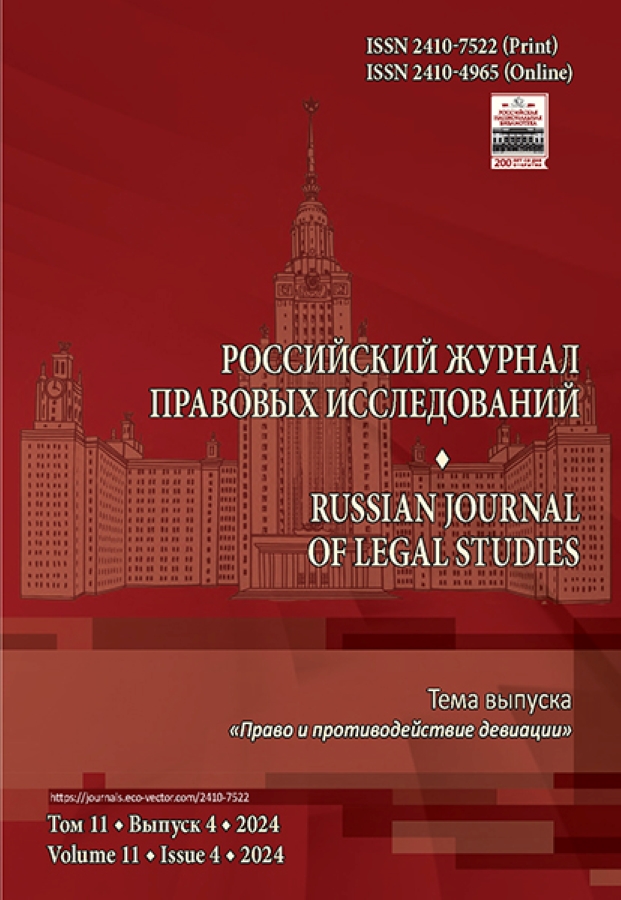Features of the implementation of sovereignty through the prism of the relationship between the functions of states, international organizations and integration associations
- Authors: Bayramov F.J.1
-
Affiliations:
- Russian State University of Social Technologies
- Issue: Vol 11, No 4 (2024)
- Pages: 75-79
- Section: Public law
- Submitted: 25.06.2024
- Accepted: 09.12.2024
- Published: 10.12.2024
- URL: https://journals.eco-vector.com/2410-7522/article/view/633793
- DOI: https://doi.org/10.17816/RJLS633793
- ID: 633793
Cite item
Abstract
This article examines the features of the implementation of sovereignty through the prism of the relationship between the functions of states, international organizations and integration associations. Sovereignty has traditionally been one of the key principles of international law and the basis of state power. However, in the modern world it faces a number of restrictions caused by globalization, international integration and the activities of multilateral organizations.
The author explores sovereignty, focusing on how the functions of interstate organizations relate to the functions of member states. The article analyzes examples from the activities of such organizations as the Union of the Russian Federation and the Republic of Belarus, the Commonwealth of Independent States, and the European Union, which allows us to identify the main trends and contradictions in this process. Particular attention is paid to aspects that limit the sovereignty of the state, such as obligations under international treaties and others. Also, in the course of the study, the author comes to highlight aspects that are decisive in the issue of the relationship between the functions of international organizations and the functions of their member states, for example, the traditionally established substantive nature of the activities of any state in the most important spheres of public life.
Thus, this article contributes to the understanding of modern sovereignty, emphasizing the need for an integrated approach to the study of its implementation through the interaction of national and transnational structures. The study highlights the importance of balancing the preservation of national independence and effective cooperation in the international arena.
Full Text
About the authors
Farman J. Bayramov
Russian State University of Social Technologies
Author for correspondence.
Email: bfarman@mail.ru
Cand. Sci. (Jurisprudence), associate professor
Russian Federation, MoscowReferences
- Steshenko LA. Multinational Russia: state and legal development of the 10 th – 21 st century. Moscow: Norma; 2002. 373 p. (In Russ.)
- Zlatopolsky DL. USSR – a federal state. Moscow: Moscow University Publishing House; 1987. 333 p. (In Russ.)
- Baburin SN. Territory of the state: legal and geopolitical problems. Moscow: Moscow University Publishing House; 1997. 480 p. (In Russ.) EDN: UYAGJZ
- Bayramov FD. Correlation of functions of the state and regional interstate associations (modern theoretical and legal problems). Moscow: RGTEU; 2003. 187 p. (In Russ.) EDN: QVXMMZ
Supplementary files








